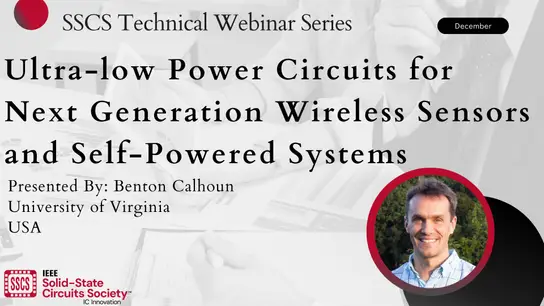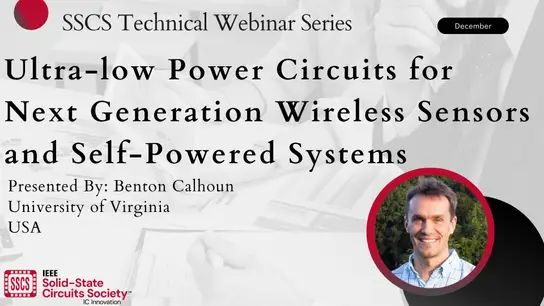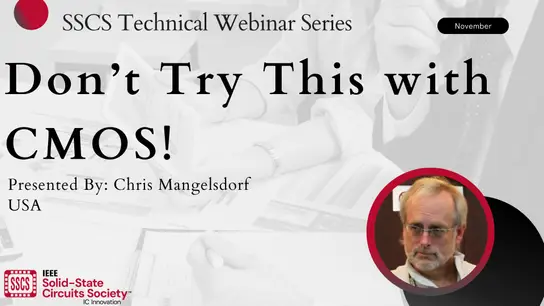High-Speed and Mixed-Signal Circuit Design Techniques in FinFET Technology for Wireline and Optical Interface Applications Slides and Transcript
Jonathan E. Proesel
-
Members: FreeSSCS
IEEE Members: $10.00
Non-members: $20.00Pages/Slides: 80
01 May 2022
Abstract: Getting the best possible performance from analog and mixed-signal circuits requires a strong understanding of the underlying IC technology. Advanced FinFET CMOS technologies have the potential for excellent analog and mixed-signal performance. However, these technologies have many pitfalls for the unwary designer: highly restrictive design rules, thin metal layers, and device self-heating, to name a few problems. This talk explores how to capture the benefits and avoid the problems of FinFET technology in high-speed wireline communications circuits. The talk begins with a brief introduction to wireline communications circuits. Then it discusses FinFET technology and the impact to high-speed wireline circuits. A set of example circuit designs in 14nm FinFET are reviewed, studying system, circuit, and layout details. Finally, the talk concludes with a set of tips and techniques to get the most out of FinFET technologies.
Biography: Jonathan Proesel is a Research Staff Member at IBM T. J. Watson Research Center, where he has conducted circuit design research since 2010. He has designed analog and mixed-signal circuits in many silicon technologies, such as 130nm SiGe BiCMOS, 90nm SOI CMOS with monolithically integrated Si photonics, and 14 and 7nm FinFET. His primary research focus is high-speed optical and electrical wireline communications, and his other interests include silicon photonics, data converters, AI hardware, and design-technology co-optimization. He received the Ph.D. degree from Carnegie Mellon University in 2010. He is a co-recipient of the 2010 IEEE CICC Best Student Paper Award and the 2018 IEEE Photonics Technology Journal Best Paper Award. At IBM, he has received multiple technical awards. He serves on the technical program committee for the Symposium on VLSI Circuits.


